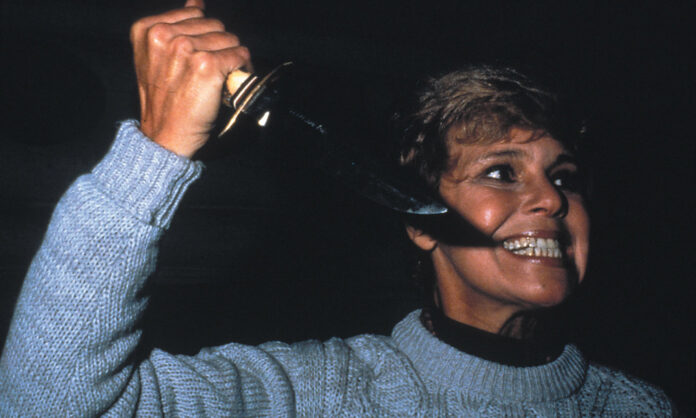In a post on CrimeReads, Leslie Anderson examines why mothers are such popular horror villains. “Why do we see women as primarily blessed, pure vessels of birth and motherhood—not only by choice but by irresistible nature—yet these elements of the human experience are often the most dangerous, messy, fraught, and physically challenging,” Anderson asks.
Anderson suggests that this contradiction is part of the appeal of using mothers as villains in horror stories. “We fear the broken mother, the broken bond of childhood, and the broken child,” she says. “And yet, unlike the common ax murderer, all of us will encounter one of these wounds in our lifetime, or at least encounter another human with that wound.”
Though this may seem like a single trope, Anderson identifies multiple themes that can be expressed through the overall concept of motherhood.
- My Kid is Scary. The children in Rosemary’s Baby and We Need to Talk About Kevin are terrifying to the audience, as well as their own mothers. “Let’s be honest, children have a natural ability to be creepy,” Anderson says. “An element of parenthood we don’t often put into words is that we are welcoming an entirely new person into our lives.” Will that person be a monster? How will you know? What will you do about it?
- Evil Mom is Mean. Cruel mothers are a common horror trope: Carrie, Black Swan, The Manchurian Candidate. While these stories center childhood rather than motherhood, they also raise the specter of the failed mother. “Carrie’s mother, after all, was trying to do her best for her daughter,” Anderson says. “She earnestly believed in hell, and that her child was in danger. If we, as an audience, truly agreed with her, would we still see her as a villain?”
- Motherhood is Changing Me (Probably For The Worst). Pregnancy can disrupt sleep patterns and eating habits, and bring about numerous physical changes in a woman’s body, beyond the obvious. Emotional upheaval can also be very common, including mood swings, body dysmorphia, and depression. “If you see two new mothers with their heads bent toward each other, chances are they are talking about how truly wild the changes to their bodies and minds are,” Anderson says. “It is no surprise that it is a quick half step to horror.”












